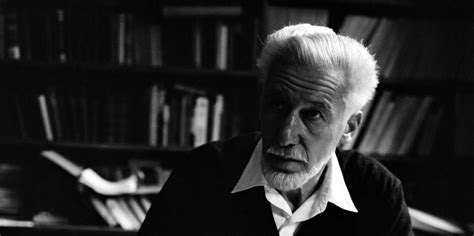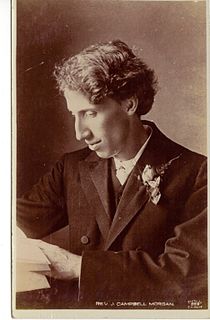A Quote by Bertrand de Jouvenel
But there are no institutions on earth which enable each separate person to have a hand in the exercise of Power, for Power is command, and everyone cannot command. Sovereignty of the people is, therefore, nothing but a fiction, and one which must in the long run prove destructive of individual liberties.
Related Quotes
Waiting for God means power to do nothing save under command. This is not lack of power to do anything. Waiting for God needs strength rather than weakness. It is power to do nothing. It is the strength that holds strength in check. It is the strength that prevents the blundering activity which is entirely false and will make true activity impossible when the definite command comes.
Human life in common is only made possible when a majority comes together which is stronger than any separate individual and which remains united against all separate individuals. The power of this community is then set up as right in opposition to the power of the individual, which is condemned as brute force.
The President can exercise no power which cannot be fairly and reasonably traced to some specific grant of power in the Federal Constitution or in an act of Congress passed in pursuance thereof. There is no undefined residuum of power which he can exercise because it seems to him to be in the public interest.
Many people confuse authority and the power of efficiency, as if the first role of people with responsibility is to take decisions, command effectively and so exercise power. But their role first of all is to be a person to whom others can turn for help and advice, to provide security, to affirm, to support, to encourage and to guide.
Norms appearing in the form of law entitle actors to exercise their rights or liberties. However, one cannot determine which of these laws are legitimate simply by looking at the form of individual rights. Only by bringing in the discourse principle can one show that each person is owed a right to the greatest possible measure of equal liberties that are mutually compatible.
Under our institutions each individual is born to sovereignty. Whatever he may adopt as a means of livelihood, his real business is serving his country. He cannot hold himself above his fellow men. The greatest place of command is really the place of obedience, and the greatest place of honor is really the place of service.
The necessity for power is obvious, because life cannot be lived without order; but the allocation of power is arbitrary because all men are alike, or very nearly. Yet power must not seem to be arbitrarily allocated, because it will not then be recognized as power. Therefore prestige, which is illusion, is of the very essence of power.
We take, and must continue to take, morally hazardous actions to preserve our civilization. We must exercise our power. But we ought neither to believe that a nation is capable of perfect disinterestedness in its exercise, nor become complacent about a particular degree of interest and passion which corrupt the justice by which the exercise of power is legitimatized.









































